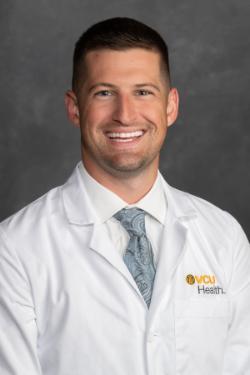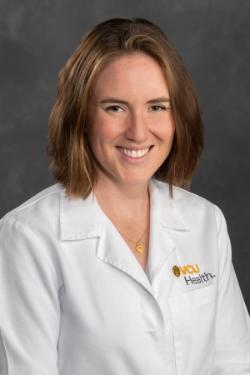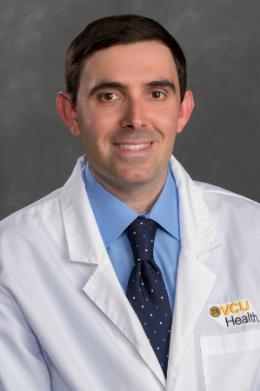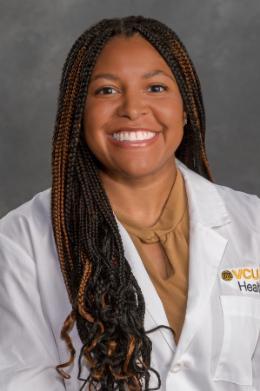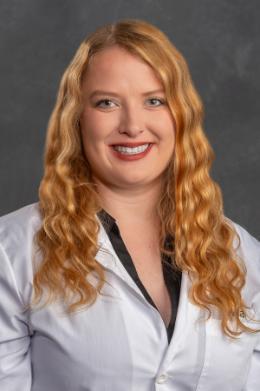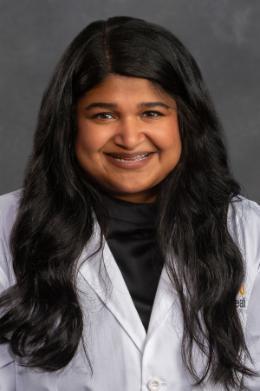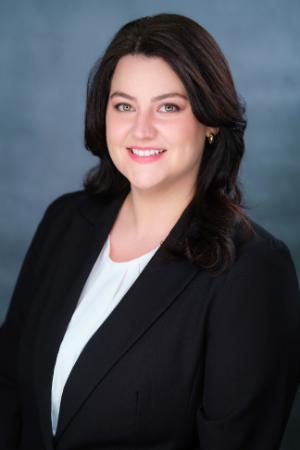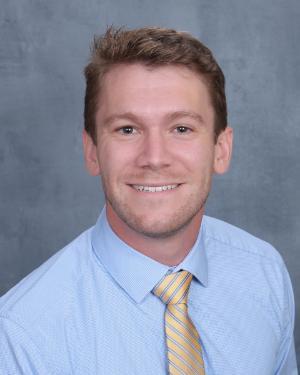About the Program
In an ever-changing landscape of modern healthcare, our combined residency program addresses the growing need for dual-trained physicians.
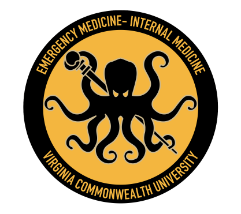
At the VCU combined Emergency Medicine and Internal Medicine (EM/IM) residency program, our mission is to develop healthcare leaders who excel in building connections, advancing education, and delivering comprehensive patient care. We are committed to nurturing a community of professionals dedicated to advancing medical knowledge, fostering interdisciplinary collaboration, and providing compassionate, holistic care to every patient.
The VCU EM/IM residency program, which began in July 2011, integrates the well-established Emergency Medicine and Internal Medicine residencies. We accept two residents per year, offering a unique dual training experience.
Our clinical training takes place primarily at the VCU Medical Center main campus and the Richmond VA Medical Center. VCU Medical Center is a high-acuity, tertiary academic facility and a Level 1 trauma, stroke, burn, and comprehensive cancer center. VCU is a safety net hospital, dedicated to providing care for a predominantly underserved patient population. Residents also gain experience at the nationally ranked VCU Children's Hospital of Richmond, a free-standing VCU-affiliated emergency department, and a local community ED. Our diverse training sites enable residents to work alongside trauma surgeons, national leaders in transplant and pediatric care, develop strong ultrasound skills, and care for our veteran population.
Upon graduation, VCU EM/IM residents are proficient in managing emergent, acute, and chronic conditions, preparing them to excel in any emergency department, internal medicine unit, or primary care clinic. VCU’s EM/IM faculty practice in a variety of settings, including the ED, Observation Unit, the EM/IM-developed Proper Care Clinic, and the Internal Medicine teaching wards. Our program prepares residents with the expertise to explore diverse career paths, including managing Observation Units, as well as engaging in research, academia, rural and critical access medicine, or pursuing subspecialty training.
In their second year, residents select a training path tailored to their career goals. The program’s flexible schedule offers access to pre-existing tracks in both Emergency Medicine and Internal Medicine, as well as EM/IM-specific tracks designed to support the unique interests and career trajectories of our combined residents.
We have ten EM/IM-trained faculty to support our residents. Our community is built through various activities throughout the year, including our graduation and intern welcome party, holiday gift exchange, and summer river retreat. As a VCU EM/IM resident, you will become part of our family!

Why VCU?
At VCU, residents get a unique, well-rounded experience in both Emergency and Internal Medicine through:
- Comprehensive training at a high-acuity academic medical center with a strong commitment to underserved populations
- Cutting-edge clinical and educational approaches, providing hands-on learning and personalized professional development for each resident
- Nationally recognized faculty dedicated to mentoring and shaping future leaders
- A diverse and inclusive work environment with an emphasis on equity in emergency medicine
- A supportive, family-like atmosphere that fosters wellness, resilience, and a sense of community
See what residents have to say about their experience at VCU.
Curriculum
Each year, residents rotate between the Departments of Emergency Medicine and Internal Medicine, switching every 4-5 blocks. Didactic requirements include monthly journal club sessions and weekly conferences. EM/IM residents take part in both the Emergency Medicine and Internal Medicine retreats annually.
Blocks are 4 weeks in length. Internal Medicine follows tandem-block scheduling, alternating between 2 weeks of inpatient and 2 weeks of outpatient/consult services. Below is an example of a block schedule by year in the program.
In the first year of training, residents have 8 blocks of Emergency Medicine and 5 blocks of Internal Medicine. On Emergency Medicine, interns transition into their new roles through an EM orientation block, followed by training in the adult and pediatric emergency departments, as well as experiences on relevant off-service rotations. Internal Medicine interns are introduced to inpatient floors, ICU level care, and their ambulatory continuity clinic, learning the basics of patient care through supervised autonomy.
Sample PGY-1 Rotations
Block |
Rotation |
|---|---|
1 |
Introduction to Emergency Medicine |
2 |
Pediatric Emergency Medicine |
3 |
Adult Emergency Medicine |
4 |
Anesthesiology/EMS |
5 |
Inpatient General Medicine/ID Consults |
6 |
Inpatient General Medicine/ID Consults |
7 |
Inpatient General Medicine |
8 |
Medical Respiratory ICU/Ambulatory |
9 |
Medical Respiratory ICU/Ambulatory |
10 |
Adult Emergency Medicine |
11 |
Orthopedic Procedures |
12 |
Adult Emergency Medicine |
13 |
Trauma Nights |
Second year residents continue their training with 8 blocks of Internal Medicine and 5 blocks of Emergency Medicine. For the first half of PGY-2 year, residents continue to hone their skills in both departments functioning as interns before transitioning into their responsibilities as senior residents in the Emergency Department and caring for the most severely ill and injured patients, while further advancing their autonomy and ability to manage medically complex patients on Internal Medicine. Internal Medicine electives consist of select subspecialty outpatient or consult services.
Sample PGY-2 Rotations
Block |
Rotation |
|---|---|
1 |
Hematology Wards/Dermatology |
2 |
Hematology Wards/Sports Med |
3 |
Inpatient General Medicine/Night Float |
4 |
Inpatient General Medicine/Nephrology |
5 |
Adult Emergency Medicine |
6 |
Ultrasound/OBGYN Labor and Delivery |
7 |
Adult Emergency Medicine |
8 |
Adult Emergency Medicine |
9 |
Adult Emergency Medicine |
10 |
VA ICU/Endocrinology |
11 |
VA ICU/Endocrinology |
12 |
VA Inpatient Cardiology/Rheumatology |
13 |
VA Inpatient Cardiology/Rheumatology |
In the third year, residents function as seniors on both the Emergency Medicine and Internal Medicine sides. Throughout this year, they step into their leadership roles as managers and teachers on their interprofessional teams. Residents further explore their interests and begin to find their niche in dual-training.
Sample PGY-3 Rotations
Block |
Rotation |
|---|---|
1 |
Surgery Trauma ICU |
2 |
Adult Emergency Medicine |
3 |
Observation Medicine/Ultrasound |
4 |
Pediatric Emergency Medicine |
5 |
Night Float/Rheumatology |
6 |
Elective/Rheumatology |
7 |
Inpatient General Medicine/Ambulatory |
8 |
Inpatient General Medicine/Ambulatory |
9 |
Inpatient General Medicine/Ambulatory |
10 |
Emergency Medicine |
11 |
Toxicology |
12 |
Adult Emergency Medicine |
13 |
Adult Emergency Medicine |
In their fourth year, residents continue as seniors in their roles in Emergency Medicine and Internal Medicine and grow as teachers and leaders. Additionally, they get to dive into their track time to further customize their combined-training.
Sample PGY-4 Rotations
Block |
Rotation |
|---|---|
1 |
Inpatient General Medicine/Ophthalmology |
2 |
Inpatient General Medicine/OMFS |
3 |
Coronary ICU/Elective |
4 |
Coronary ICU/Elective |
5 |
VA Emergency Medicine |
6 |
Track Elective |
7 |
Community Emergency Medicine |
8 |
Adult Emergency Medicine |
9 |
Adult Emergency Medicine |
10 |
Digestive Health/Nephrology |
11 |
Digestive Health/Palliative Care |
12 |
Wellness Reserve/Night Float |
13 |
Track Elective/Ambulatory Elective |
Fifth-year residents in the EM/IM program are truly leaders in the hospital and become increasingly independent, preparing to contribute to the medical community as dual-trained physicians. Through the remainder of their track time, they are able to customize their last year to kickstart their careers.
Sample PGY-5 Rotations
Block |
Rotation |
|---|---|
1 |
New Kent Emergency Center |
2 |
Track Elective |
3 |
Pediatric Emergency Medicine |
4 |
Adult Emergency Medicine |
5 |
Medical Respiratory ICU/Urgent Care |
6 |
Medical Respiratory ICU/Urgent Care |
7 |
Inpatient General Medicine/Track Elective |
8 |
Inpatient General Medicine/Track Elective |
9 |
Night Float/Medicine Elective |
10 |
Track Elective |
11 |
Adult Emergency Medicine |
12 |
Adult Emergency Medicine |
13 |
Track Elective |
EM/IM-Led Initiatives
EM/IM-trained clinicians develop a unique perspective of healthcare, which allows them to find innovative solutions in health systems and patient care. EM/IM residents have the opportunity to work with faculty on these initiatives, including several of our active projects:
-
Proper Care Clinic: This initiative EM/IM developed clinic provides rapid, virtual follow-up after ED visits to help prevent readmissions and connect patients with appropriate outpatient services.
- HIV Emergency Department Testing: EM/IM residents implemented the capability of HIV testing in the emergency department with coordinated health department follow up to ensure appropriate connection to treatment.
- Social Determinants of Health Screening: All ED patients are screened for housing, food, financial insecurity, and other needs. Patients who screen positive are connected with ED-based outreach workers who help provide resources, establish primary care with local providers, and initiate insurance screening.
- ACCESS-EM: A VCU School of Medicine curriculum that teaches residents how to approach system development in low-resource and global settings. More details can be found here.
-
Utilization Management: Residents will gain an appreciation and understanding of the benefits and impacts of physician advisors by working alongside EM/IM faculty who serve as physician advisors for the VCU Health System.
Prior EM/IM Initiatives:
-
Rapid Disposition Team: EM/IM residents and faculty worked with a multidisciplinary care team to assist with complex discharges, particularly in challenging patient cases.
- Remote Patient Monitoring (Rom-Com): Provided COVID-positive patients with pulse oximeters and clinician check-in calls to monitor their health at home, offering guidance on when to return to the ED if needed.
Salary and Benefits
VCU is proud to offer competitive salaries compared to housestaff across the Commonwealth of Virginia. Cost of living adjustments occur each year.
PGY-1: $66,747
PGY-2: $68,608
PGY-3: $71,079
PGY-4: $73,853
PGY-5: $77,971
Cost of living adjustments are reflected on payroll beginning July 1.
We offer three weeks of paid vacation each year, with an additional time off at either Christmas or New Years.
Residents also receive expense accounts to cover the costs of educational materials and conference attendance:
PGY-1: $1,800
PGY-2: $2,400
PGY-3+: $2,600
In addition to Professional Expense Account Funds, residents are given:
NEJM Knowledge+ Question Bank
ROSH Review
First Aid for Emergency Medicine
Residents receive membership fee coverage for the following organizations:
- American College of Physicians
- American College of Emergency Physicians
- Emergency Medical Residents Association
- Society of Academic Emergency Medicine
- Virginia College of Emergency Physicians
We also provide subscriptions to the following publications, along with training tools to prepare for professional examinations:
- Academic Emergency Medicine
- Annals of Emergency Medicine
The Departments of Emergency Medicine and Internal Medicine are committed to supporting residents presenting original work at regional and national scientific conferences when they exceed the scope of the professional expense account.
Health Insurance
Residents are eligible for subsidized health insurance through Cigna. There are several plans to choose from to match your and your family's needs. All of the plans allow members to visit the provider of their choice without having a primary care referral.
- Health (family plan optional)
- Dental (optional)
- Disability
- Life
- Malpractice
Tax-Free Health Expenditure Account
All residents may contribute to a tax-free account that may be used to cover medical expenses not otherwise covered by their insurance. This is a great way to pay for remaining balances on medical expenses like eyeglasses, dental work, etc.
Retirement Savings
VCU offers residents a 457(B) for customized retirement contribution with a matching contribution from the health system of up to 50% of your contributions for up to 4% of your salary into a 401(A) account.
Subsidized Parking
Parking in a covered deck attached to the hospital is subsidized by the department.
Athletic Facilities
Residents are eligible to become members of the VCU athletic centers. With several locations throughout the city, including the state-of-the-art Cary Street Gym and the MCV Campus Recreation and Aquatic Center, residents receive a discounted membership fee. This also provides access to equipment rentals for watersports, climbing, and backpacking. In addition, many of the athletic clubs around town offer discounts to VCU residents.
Libraries and Computing
VCU residents receive free access to VCU's online library collections, including UpToDate, MD Consult, Cochrane Collaboration, Rosen's Emergency Medicine online text and a host of free full-text journals such as the New England Journal of Medicine and Annals of Emergency Medicine. You can browse availability through VCU Libraries. In addition to the PACS radiology system available throughout the hospital, VCU Radiology Online allows physicians access to radiology studies as well as access to real-time dictations from any Internet terminal on campus.
Meal Stipend
Residents will receive a stipend to cover on-call meals. The stipend can be used at any food vendor at VCU as well as at select vending machines. Current food vendors include Subway, Chick-Fil-A, Panera Bread Company, Starbucks, and the cafeteria which offers a variety of fresh food options. The total amount is calculated based on number of call shifts and the location of rotations.
Other Benefits
- Personalized VCU Health vests (2)
- Personalized VCU scrubs
- Six hours tuition credit per semester for any VCU course
- Excellent day care facilities for infants and children
- Yearly in-training examination
- Voice-recognition software for chart dictation
- Scribe use for senior residents in the Emergency Department
Resident Life
Finding family amongst co-residents
Residency is an exciting time of growth and development as residents step into their new roles as physicians, which also comes with its own challenges. While our program requires hard work, we make resident wellness a priority and are constantly working to improve resident resilience and well-being.
In addition to relationships built within the separate EM and IM residencies, our residents find friendship and support in their EM/IM co-residents. The residents make an effort to arrange social events outside of work, including holiday gatherings, river floats, and game nights. Faculty also host several events throughout the year, such as our annual graduation/new resident welcome party and white elephant gift exchange.
Richmond as a city offers plenty of opportunity to foster a healthy work-life balance, with diverse and vibrant neighborhoods, museums, music venues, restaurants, breweries, and parks. In addition to the city's own thriving outdoor scene, its location in Central Virginia makes it ideal for day trips to both the beach and mountains.
Learn more about RichmondDiscover RVA
How to Apply
Join our talented and dedicated team
VCU third-year medical students can take a "Foundational Elective" in EM-IM (Emergency Medicine and Internal Medicine). Information is available on the SOM M3 blackboard.
Visiting fourth-year students can apply to an Emergency Medicine-Internal Medicine rotation in the Visiting Student Learning Opportunities (VSLO) program. Those interested should contact Dr. Christina Vitto (christina.vitto@vcuhealth.org) directly with their interest.
Please direct questions regarding the EM/IM program or application process to:
Program Leadership
Click each card for more information.
Program Director
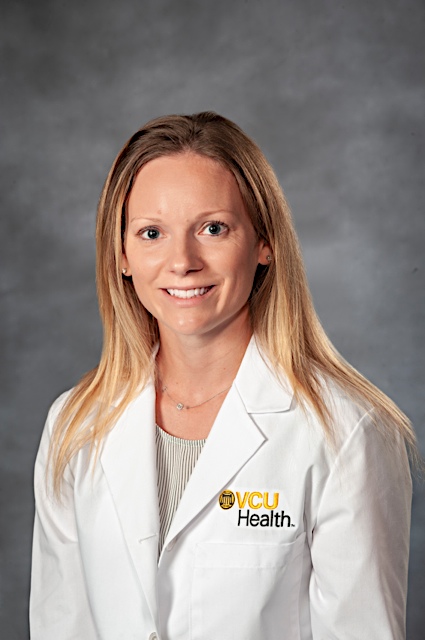
Christina Vitto, MD
Associate Professor, EM/IM Program Directory

Christina Vitto, MD
Associate Professor, EM/IM Program Directory
Division of Observation Medicine
Nina Vitto graduated from Virginia Commonwealth University School of Medicine and completed a combined residency in Emergency Medicine and Internal Medicine at VCU. She is an Assistant Professor at VCU, board-certified in both specialties, and a Fellow of the American College of Emergency Physicians.
She is interested in medical education and has developed a primary care curriculum for Emergency Medicine residents as well as annual training on breaking bad news. Dr. Vitto serves as the Program Director for both the Emergency Medicine-Internal Medicine residency and the accelerated three-year medical school program. She has developed elective curriculum within the school of medicine for the three-year accelerated program. She also serves as a physician advisor for the health system and as the Chair of the Emergency Department faculty search committee. Clinically, Dr. Vitto works in the Emergency Department, Clinical Decision Unit, Proper Care Clinic, and Internal Medicine Teaching Wards.
Faculty
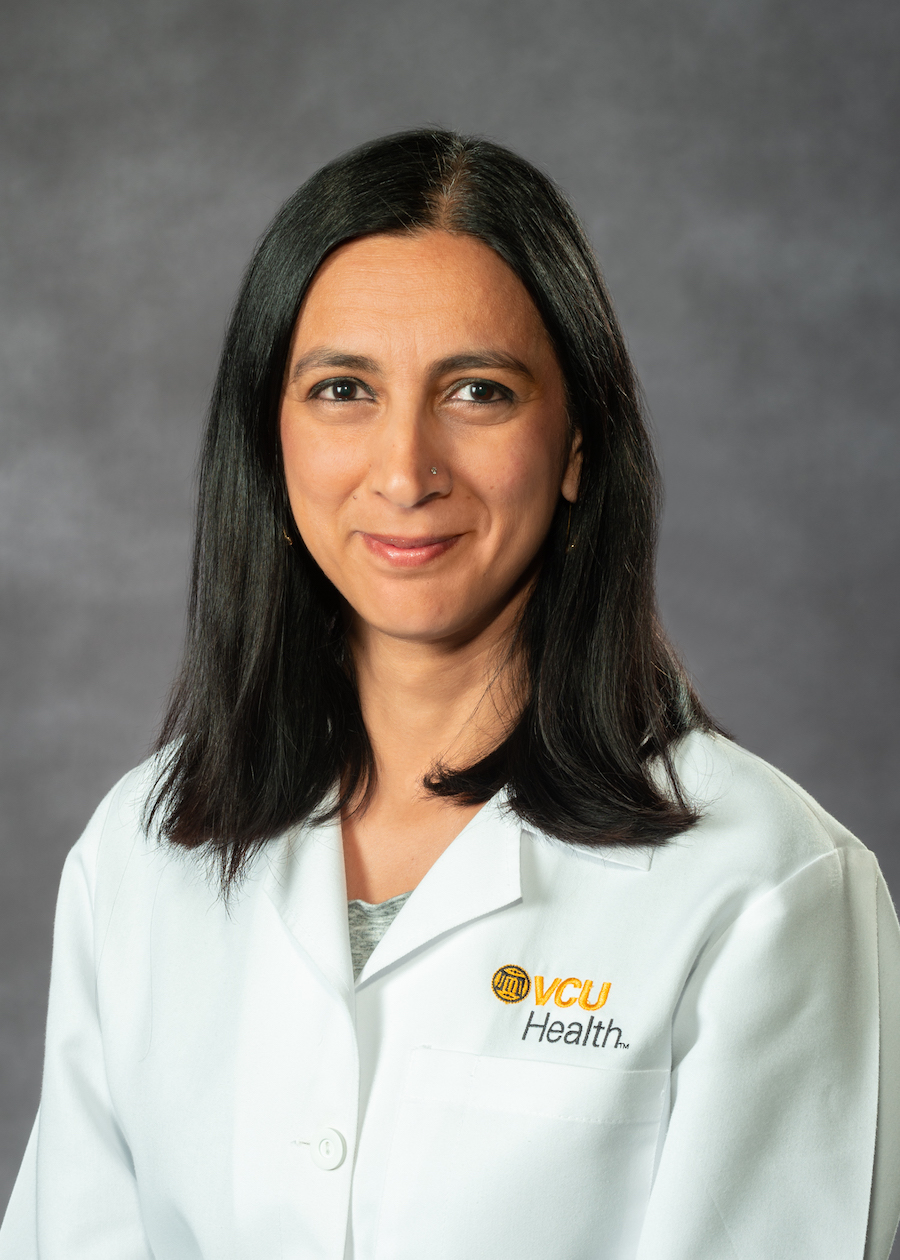
Taruna Aurora, MD
Associate Professor, Enterprise Medical Director of UM and Physician Advisor Services

Taruna Aurora, MD
Associate Professor, Enterprise Medical Director of UM and Physician Advisor Services
Division of Observation Medicine
Clinical Decision Unit Co-Director
Email: taruna.aurora@vcuhealth.org
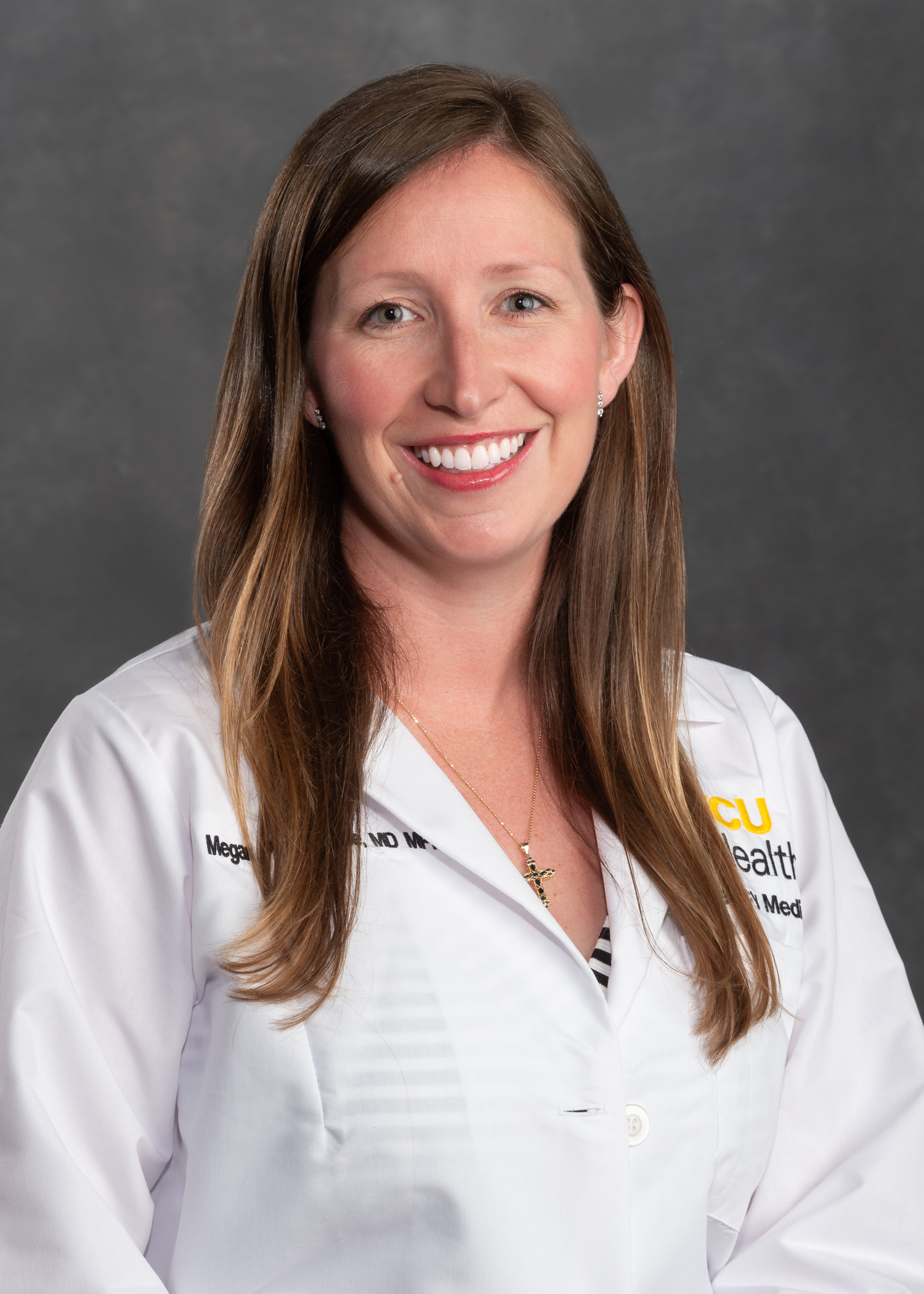
Megan Donohue, M.D., MPH
Assistant Professor, EM/IM Core Faculty

Megan Donohue, M.D., MPH
Assistant Professor, EM/IM Core Faculty
Emergency Medicine/Internal Medicine Faculty
Email: megan.donohue@vcuhealth.org
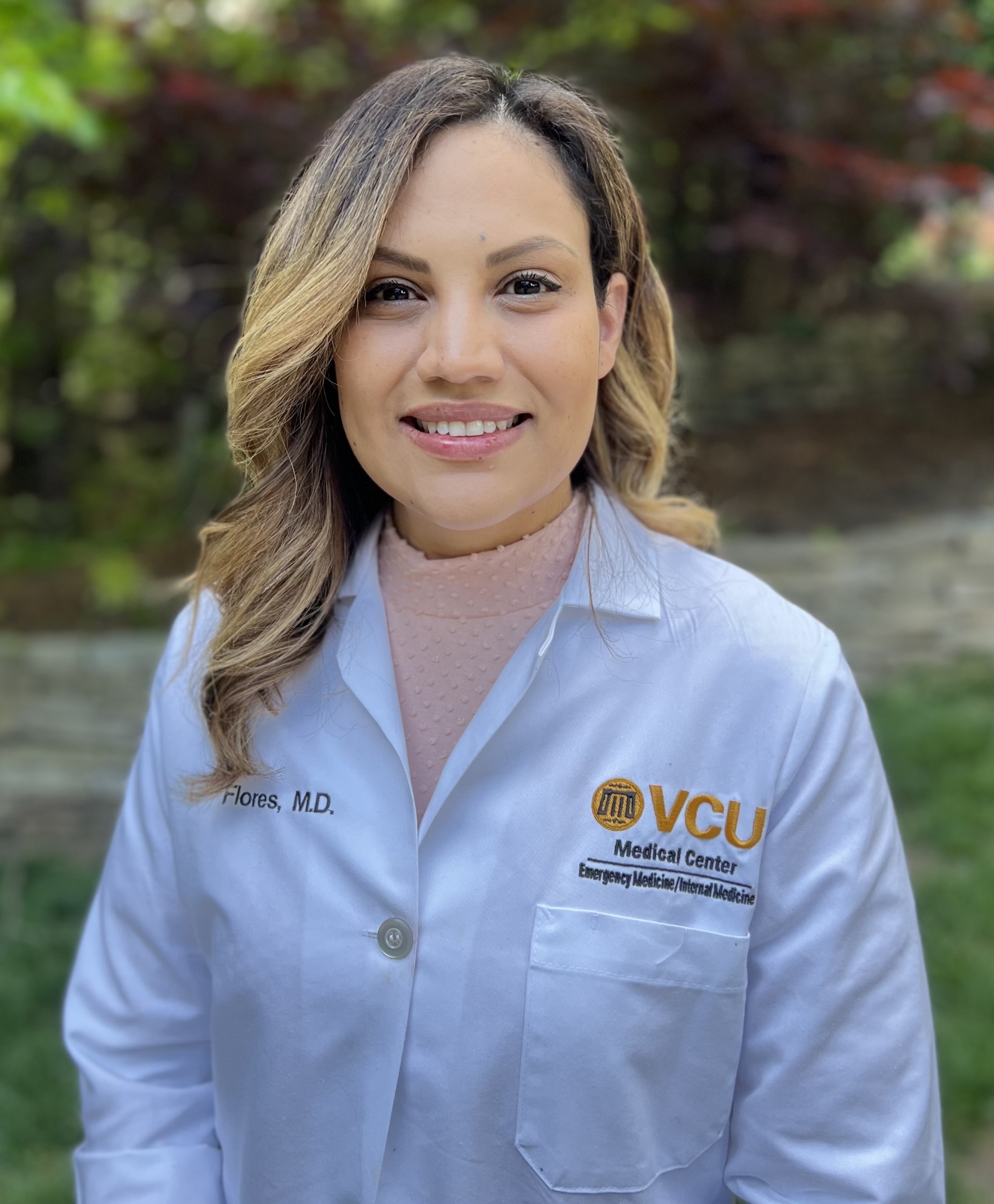
Leticia Flores, MD
Assistant Professor, EM/IM Assistant Program Director

Leticia Flores, MD
Assistant Professor, EM/IM Assistant Program Director
Emergency Medicine/Internal Medicine Faculty
Email: Leticia.Flores@vcuhealth.org
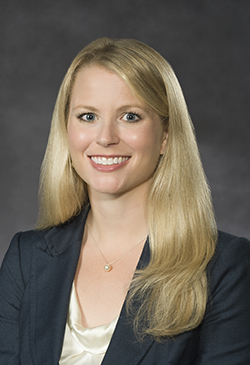
Rebecca Forrest, MD
Associate Professor, IM Program Director

Rebecca Forrest, MD
Associate Professor, IM Program Director
Department of Internal Medicine
Internal Medicine Residency Program Director
Email: rebecca.miller@vcuhealth.org
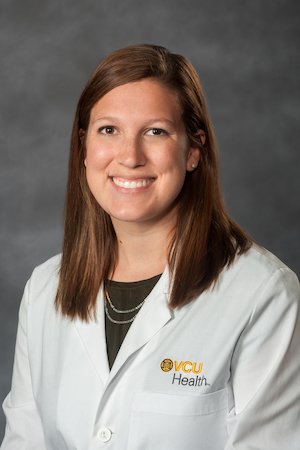
Hannah Kissel-Smith, MD
Assistant Professor, EM/IM Core Faculty

Hannah Kissel-Smith, MD
Assistant Professor, EM/IM Core Faculty
Emergency Medicine & Psychiatry
Emergency Medicine/Internal Medicine Faculty, Addiction Medicine Faculty
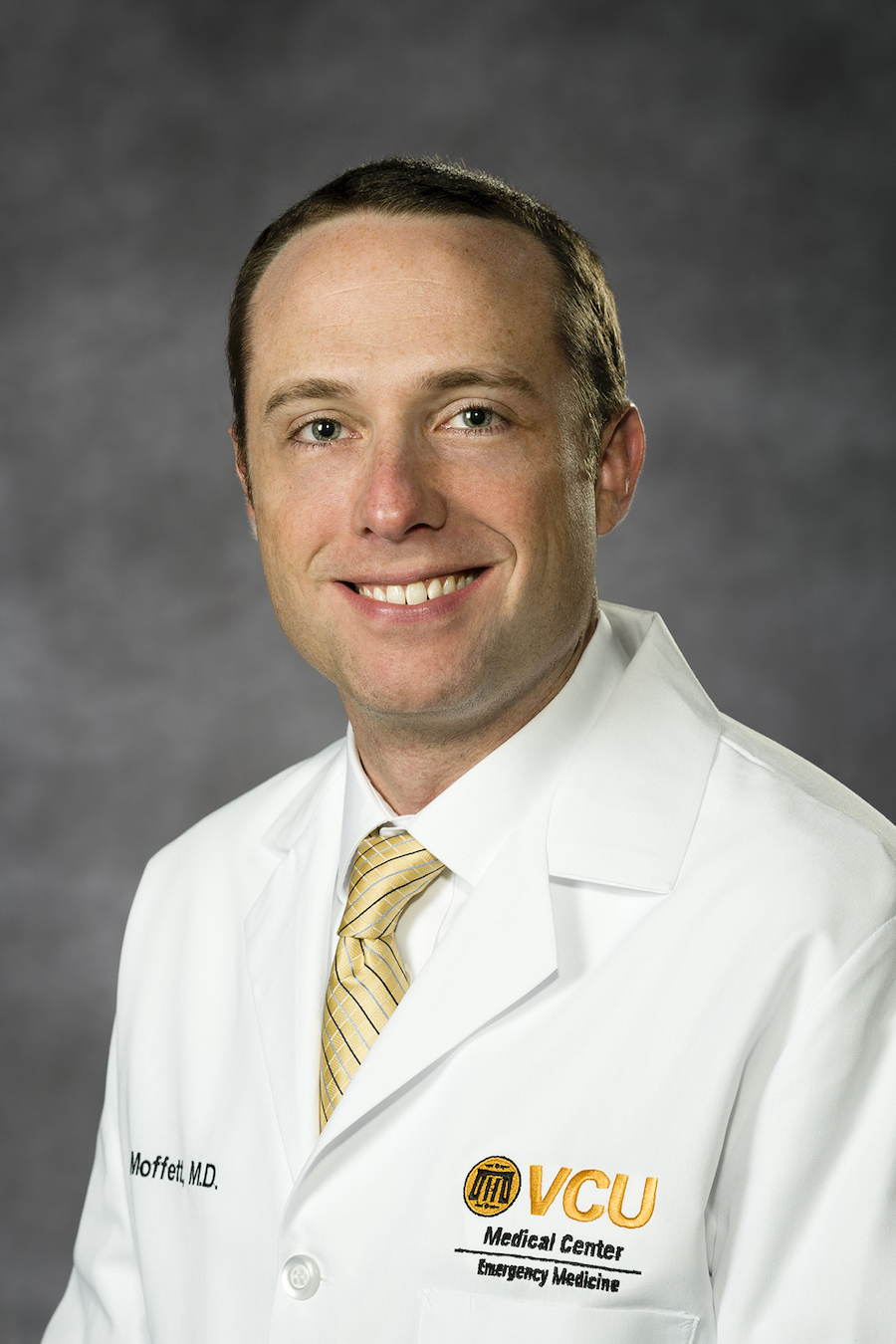
Peter Moffett, MD, FACEP
Associate Professor, EM Program Director

Peter Moffett, MD, FACEP
Associate Professor, EM Program Director
EM Residency Program Director
Email: peter.moffett@vcuhealth.org
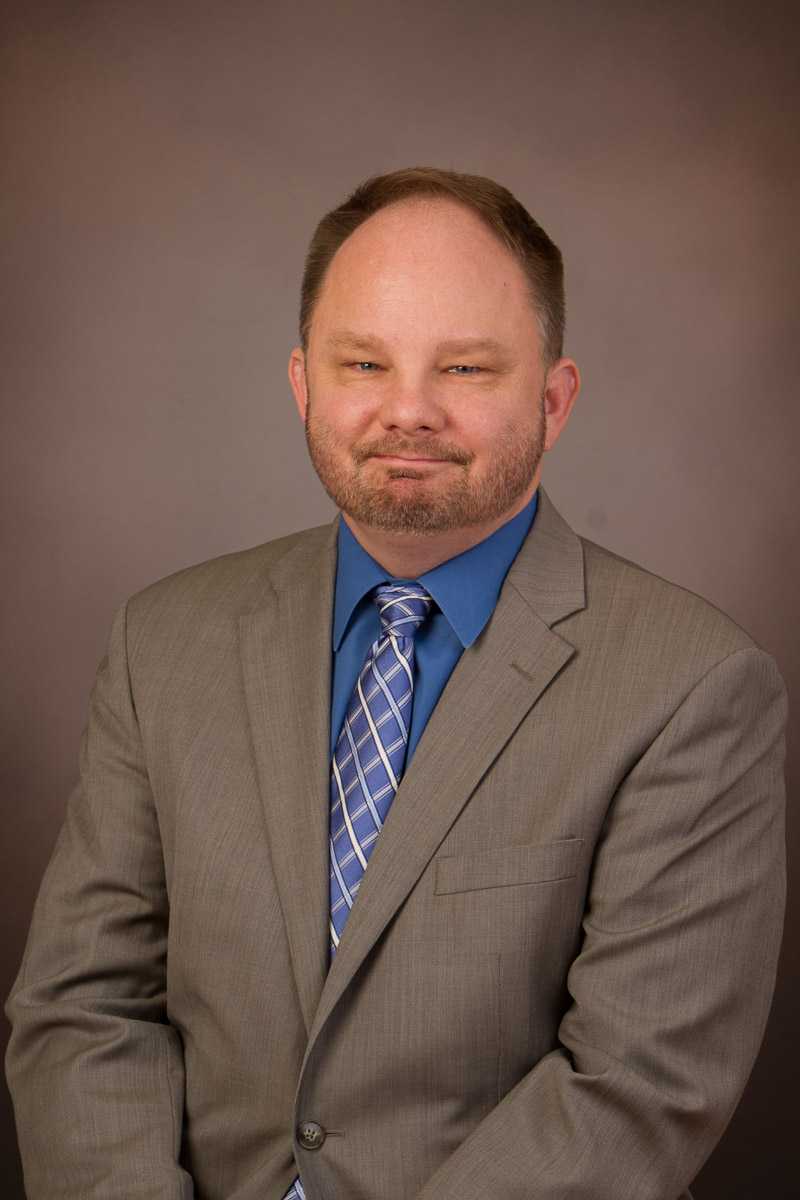
Joel Moll, MD, FAAEM FACEP
Professor

Joel Moll, MD, FAAEM FACEP
Professor
Emergency Medicine
Vice Chair of Education
Interim Assistant Dean, Faculty Affairs
Email: joel.moll@vcuhealth.org
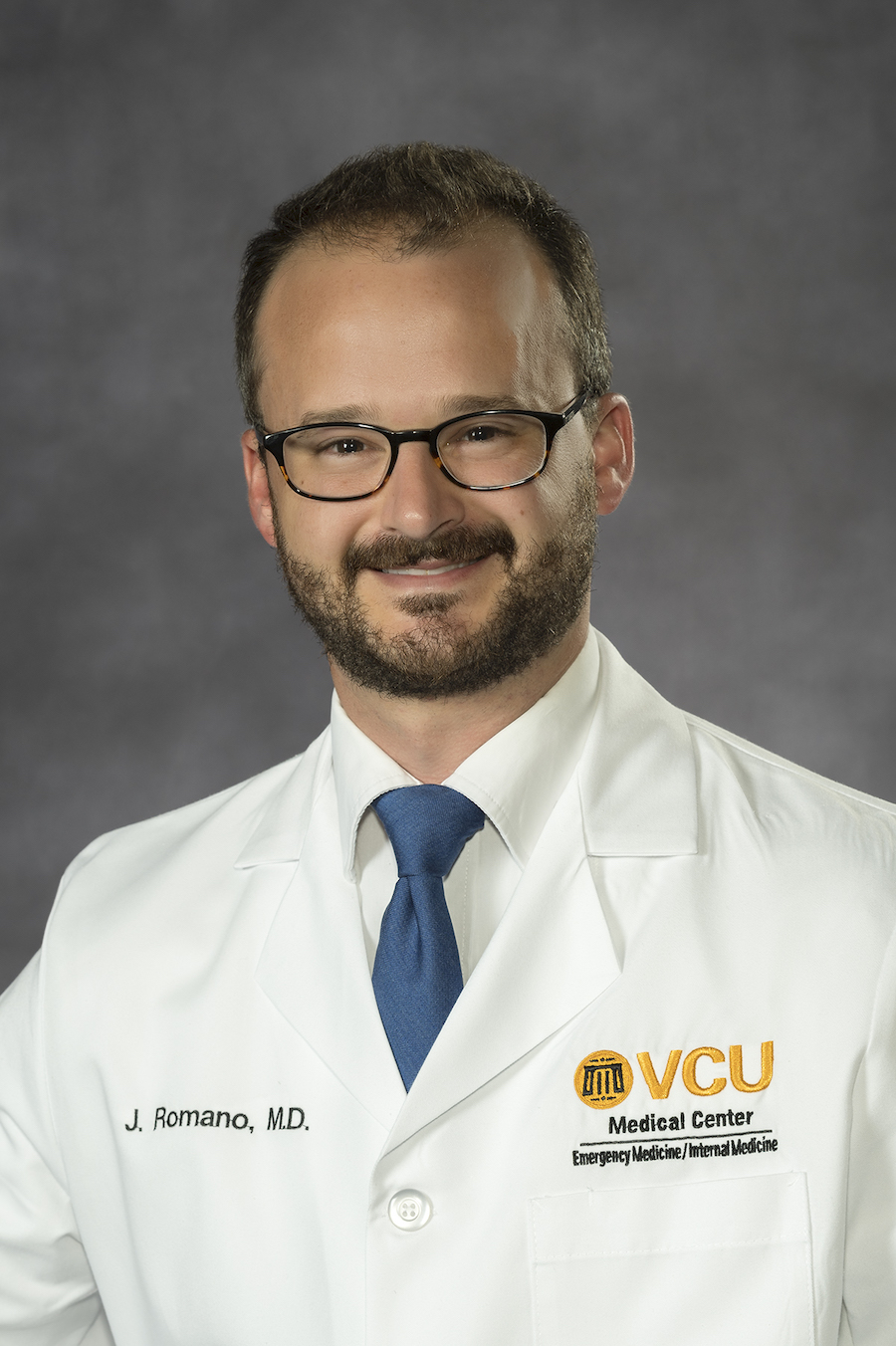
Joseph D. Romano, MD
Assistant Professor

Joseph D. Romano, MD
Assistant Professor
Division of Observation Medicine
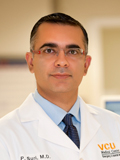
Pawan Suri, MD
Associate Professor, Chair of Division of Observation Medicine

Pawan Suri, MD
Associate Professor, Chair of Division of Observation Medicine
Division of Observation Medicine
Division of Observation Medicine Chair
Email: pawan.suri@vcuhealth.org
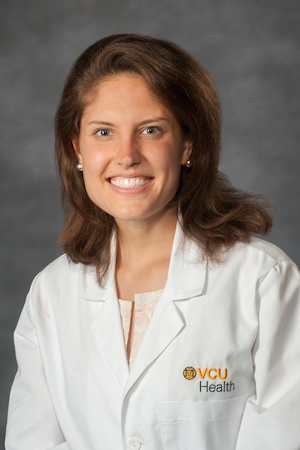
Hillary Wiles-Lafayette, DO
Assistant Professor

Hillary Wiles-Lafayette, DO
Assistant Professor
Emergency Medicine/Internal Medicine Faculty
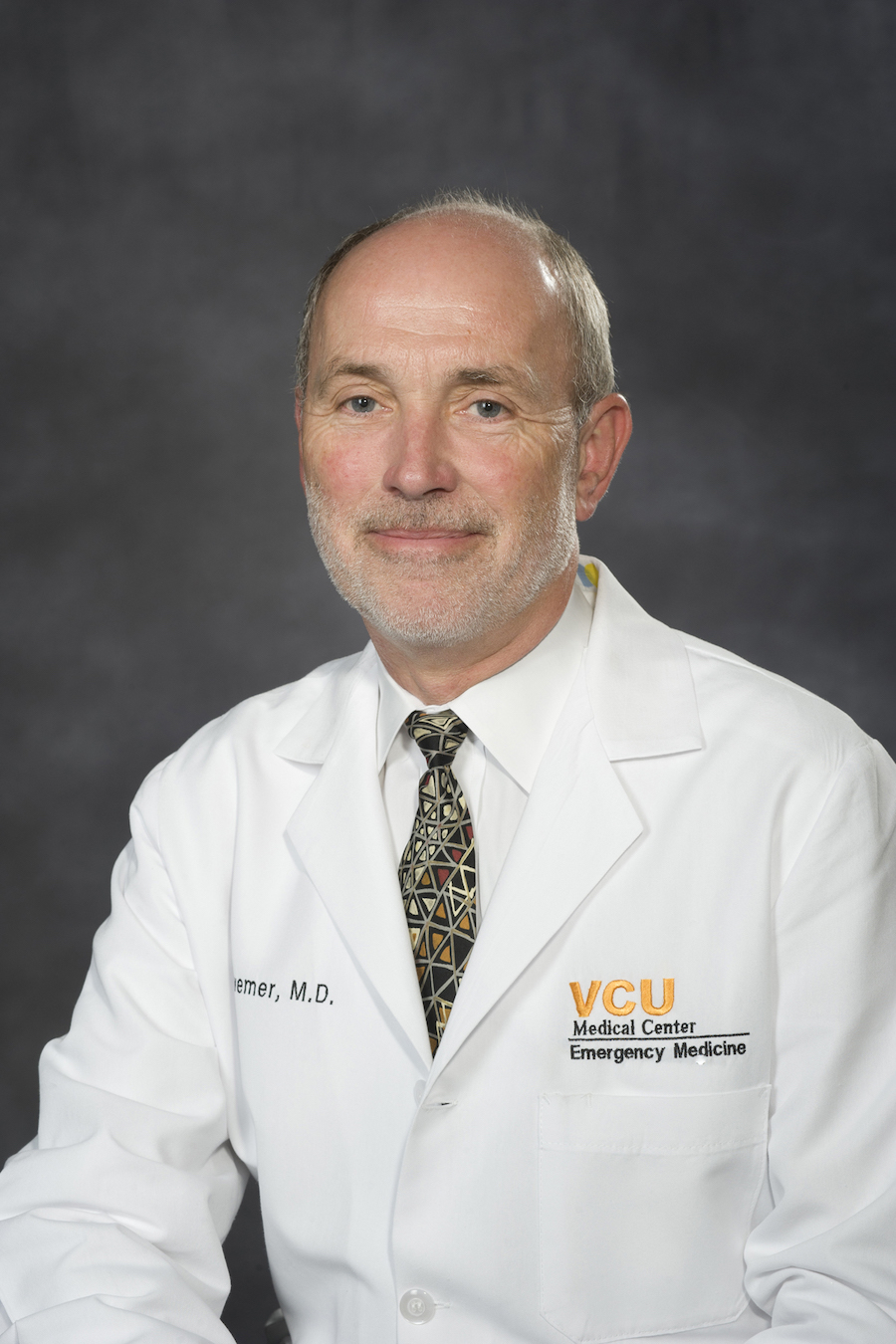
Frank L. Zwemer, MD, MBA
Associate Professor

Frank L. Zwemer, MD, MBA
Associate Professor
Richmond VAMC Emergency Medicine
Email: frank.zwemer@va.gov
Program Coordinators
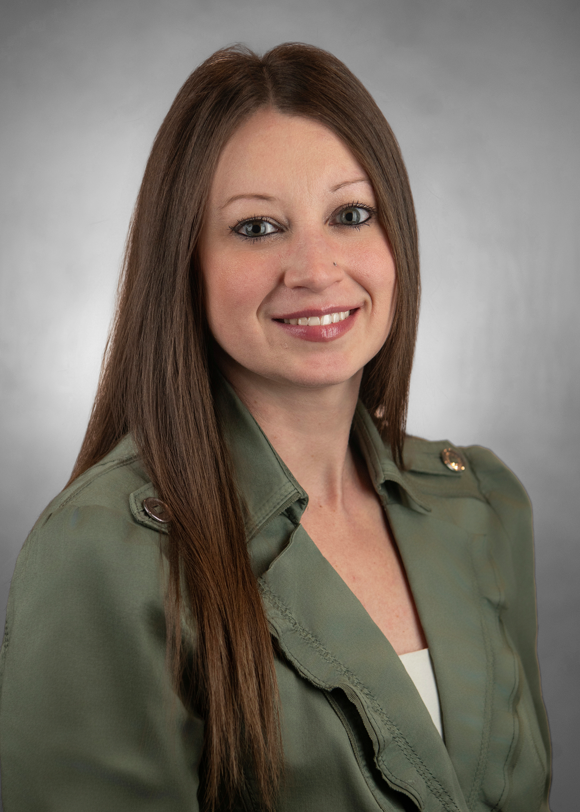
Kindle Zimmerman
Program Coordinator

Kindle Zimmerman
Program Coordinator
Emergency Medicine
Phone: 804-828-1405
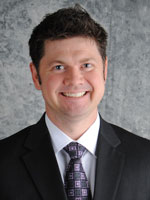
Kevin Keller, MS
Program Coordinator

Residents
Meet our current residents
Chief Residents, PGY-5
Katherine Mulligan, MD (PGY-5)
Email: katherine.mulligan@vcuhealth.org
Education
- BS, University of North Carolina at Chapel Hill, 2016
- MD, The Brody School of Medicine at East Carolina University, 2020
Clinical Training
- Combined Residency in Emergency Medicine and Internal Medicine, Virginia Commonwealth University, Class of 2025
Experiences
- Research: East Carolina University, Vidant Injury Prevention Program, Pediatric Passenger Safety
- Volunteer Work: Co-Director Greenville Community Shelter Clinic; Service-Learning Distinction Track at the Brody School of Medicine; Albert Schweitzer Fellowship Continuity of Care Project to Improve Healthcare and Access to Resources for Homeless Patients in Greenville, NC
Academic Interests
- Healthcare for the Underserved and Service in Medicine
- Healthcare Disparities and Social Determinants of Health
- Global Health
- Quality Improvement Initiatives and Research
- Palliative Care
- Observation Medicine
- Critical Care
Hobbies/Interests
- Distance Running
- Road Biking
- Reading
- Kayaking
- Visiting and Hiking in State and National Parks
- National Public Radio (NPR)
- Bluegrass Music
- Family Game Nights
- Yoga
Jessica Patton, MD (PGY-5)
Email: jessica.patton@vcuhealth.org
Education
- BA, University of Virginia, 2012
- MS, Tulane University, 2015
- MD, Virginia Commonwealth University, 2020
Clinical Training
- Combined Residency in Emergency Medicine and Internal Medicine, Virginia Commonwealth University, Class of 2025
Experiences
- Research: Tulane University - Role of MDM2 in P53 Pathway; Virginia Commonwealth University/Richmond Ambulance Authority - EMS Utilization in Minority Populations
- Volunteer Work: Volunteer EMT with Charlottesville Albemarle Rescue Squad, 2010-2014; Hands-Only CPR Classes for Low Income Housing Residents with Richmond Ambulance Authority, 2016-2018
- Work: Lab Assistant, 2014-2016; ED Scribe, 2015-2016
Academic Interests
- Emergency Medical Services
- Observation Medicine
- Wilderness/Disaster Medicine
Hobbies/Interests
- Hiking with My Dogs (Piper and Finley)
- Disc Golf
- Reading Science Fiction/Fantasy Books
- Live Music
- Eating Pizza
PGY-4
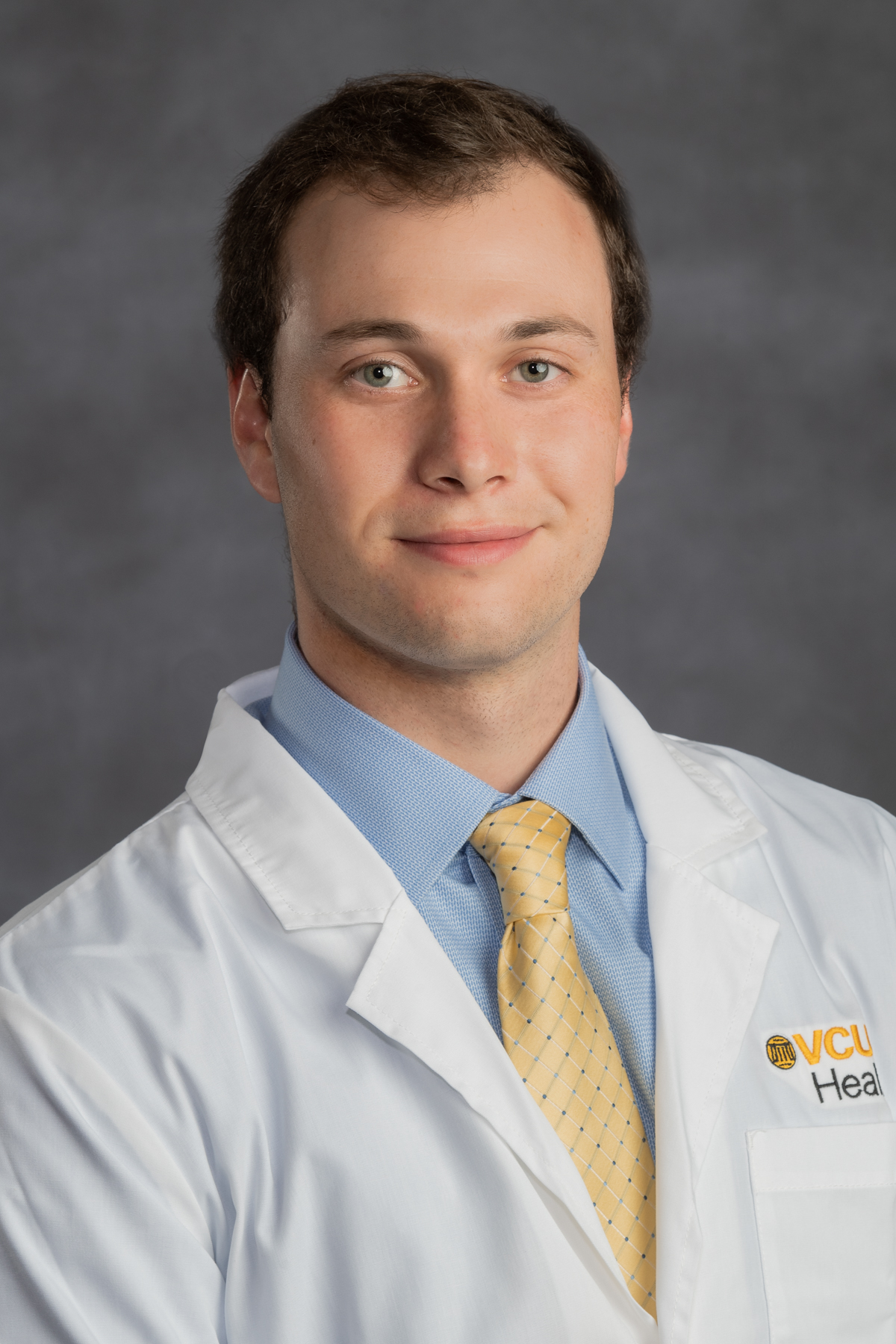
Griffin Bleecker, MD (PGY-4)
Email: griffin.bleecker@vcuhealth.org
Education
- BA, Colgate University, 2015
- MS, Boston University School of Medicine, 2017
- MD, Boston School of Medicine, 2021
Clinical Training
- Combined Residency in Emergency Medicine and Internal Medicine, Virginia Commonwealth University, Class of 2026
Experiences
- Research: Boston Medical Center Department of Medicine, Hemodyalisis in EtOH Intoxication; Boston University School of Medicine Office of Medical Education, Curricular Design in POCUS Teaching
- Volunteer: Clinical Assistant/Translator Pop Wuj Clinic Quetzaltenango, Guatemala
- Work: Professor of English Language Escuela Politécnica Nacional (Quito, Ecuador), Maintenance Man, Climbing Park Monitor, Math Tutor
Academic Interests
- Low Resource Clinical Care
- Global Health
- Health Centers as Community Centers
- Cross Cultural Institutional Partnerships
Hobbies/Interests
- Culinary Tourism (recipes are the best souvenirs!)
- Backpacking/Hiking
- Watching nature documentaries from the comfort of his couch
- Pick-up basketball
- Manchester United
Evan Vance, MD (PGY-4)
Email: evan.vance@vcuhealth.org
Education
- BA, West Virignia University, 2013
- MD, West Virginia University School of Medicine, 2021
Clinical Training
- Combined Residency in Emergency Medicine and Internal Medicine, Virginia Commonwealth University, Class of 2026
Experiences
- Research: Charleston Area Medical Center, The Under-recognized Cardiovascular Effects of PTHrP
- Volunteer work: Charleston Homeless and Street Medicine
- Work: Boys and Girls Club of America, Erickson Alumni Center Server, Monongalia Emergency Medical Services EMT/Paramedic
Academic Interests
- Critical Care
- Graduate Medical Education
- Medical Care for Underserved Populations
Hobbies/Interests
- Audiobooks, especially Fantasy
- College basketball
- Tabletop gaming
- Videogames
PGY-3
Zach Cutter, MD (PGY-3)
Email: zachary.cutter@vcuhealth.org
Education
- BS, James Madison University, 2014
- MS, Virginia Commonwealth University, 2018
- MD, Virginia Commonwealth University, 2022
Clinical Training
- Combined Residency in Emergency Medicine and Internal Medicine, Virginia Commonwealth University, Class of 2027
Experiences
- Research: VCU, role of inflammation in cardiovascular disease states such as myocardial infarction and heart failure
- Volunteer work: Church Hill Academics & Tutoring
- Work: ED scribe 2014-2016, EMT-B Richmond Ambulance Authority 2015-2016
Academic Interests
- Event/Disaster Medicine
- Critical Care
- Medical Education
- Point of Care Ultrasound
- Evidence Based Medicine
Hobbies/Interests
- Golfing
- Fishing
- Pick-up basketball
- Hiking trails around the James River with my dog, Cash
- Going to live sporting events
- Local breweries/wineries
- Anything at the beach
Brennen O'Rourke, MD (PGY-3)
Email: brennen.orourke@vcuhealth.org
Education
- BS, Georgetown University, 2013
- MS, Virginia Commonwealth University, 2019
- MD, Virginia Commonwealth University, 2022
Clinical Training
- Combined Residency in Emergency Medicine and Internal Medicine, Virginia Commonwealth University, Class of 2027
Experiences
- Research: VCU, Ketogenic Diet on Weight and Insulin in IDDM2, GSK3B on Ethanol-Seeking Behaviors, Opioid Abuse and NeuroHIV on Oligodendrocyte development; Georgetown University, N-Acetylaspartylglutamate Inhibition on Behavior in Animal Models of Schizophrenia
- Volunteer work: Virginia Department of Health Medical Reserve Corps, Goochland Free Clinic, VCUSOM Project Smile, Planned Parenthood, Practice of Clinical Medicine course student co-leader
- Work: Rowing coach, Graduate neuroscience teaching assistant, preclinical medicine tutor, graduate research coordinator, ED scribe, IT and AV, line order food prep and restaurant worker
Academic Interests
- Medicine in Austere and Low-Income Environments
- Disaster Medicine
- Global Health
- Critical Care
- Undergraduate and Graduate Medical Education
Hobbies/Interests
- Rowing, especially sculling
- Road and trail running, running groups, and getting lost while running
- Indoor rock climbing
- Acrylic painting
- True crime podcasts
- Live music, particularly punk, alternative, and classic rock
PGY-2
Daniel Berger, MD (PGY-2)
Email: daniel.berger@vcuhealth.org
Education
- BS, California Polytechnic State University, 2015
- MD, The Pennsylvania State University College of Medicine, 2023
Clinical Training
- Combined Residency in Emergency Medicine and Internal Medicine, Virginia Commonwealth University, Class of 2028
Experiences
- Work: EMT, EMS Training Manager, ED Scribe, BLS Instructor, Stagehand
- Volunteer Work: EMT/Event Manager with Rock Medicine, Small Group Facilitator/Simulation Instructor at Penn State College of Medicine, Committee Member (Resuscitation & Tobacco Cessation) at Penn State Health
- Research: EMS Attitudes Toward Addressing Social Needs, Use of an Alternative EMS Destination During COVID-19, Characterization of Bouncebacks from the EDOU, Perceptions of Student-Led OSCEs & Case-Based Learning, Provider Barriers to Offering Tobacco Cessation, N95 Respirator Reuse/Decontamination
Academic Interests
- Health Systems/QI
- Medical Education and Simulation
- Resuscitation and Critical Care
- EMS and Disaster Medicine
- Social Determinants of Health/Safety Net Care
Hobbies/Interests
- Cooking/Baking
- Board Games
- Gardening
- DIY
- Coffee, Cocktails, and Craft Beer (not together)
Chrissy Draper, MD (PGY-2)
Email: christiana.draper@vcuhealth.org
Education
- BA, Spelman College, 2015
- PhD, Wright State University, 2021
- MD, Wright State University, 2023
Clinical Training
- Combined Residency in Emergency Medicine and Internal Medicine, Virginia Commonwealth University, Class of 2028
Experiences
- Research: WSU, ALS-induced Excitability Changes in Individual Motorneurons and the Spinal Motorneuron Network in SOD1-G93A Mice at Symptom Onset; Spelman College, The Role of Sense of Belonging and Extracurricular Involvement in Minority Students' Academic Performance
- Volunteer work: Minority Student Recruiter for WSU Biomedical Sciences PhD Program, MEDSHARE, SNMA, Intern for Dr. Bernice King
- Work: Medical Student Tutor, Researcher for Alion Science and Technology, Lead Instructor for WSU BSOM Prematriculation Program
Academic Interests
- Medical Care for Underserved Populations
- Disaster Medicine
- Global Health
Hobbies/Interests
- Kayaking
- Acrylic Painting
- Playing Basketball
- Weight Lifting
- Binge Watching Netflix
PGY-1
Alexis Nelson, DO, MA (PGY-1)
Email: Alexis.Nelson@vcuhealth.org
Education
- BA, William Jewell College, 2020
- MA, Kansas City University, 2024
- DO, Kansas City University, 2024
Clinical Training
- Combined Residency in Emergency Medicine and Internal Medicine, Virginia Commonwealth University, Class of 2029
Experiences
- Work: Emergency Department Scribe, Musculoskeletal System Course Tutor, Human Anatomy Lab Teaching Assistant, William Jewell College Call Center Manager
- Volunteer work: Ronald McDonald House Charities of the Four States, Kansas City Shepard’s Center Meals on Wheels Program, Crossroad’s Hospice & Palliative Care, Kansas City University Score 1 for Health, Liberty Hospital (Post Anesthesia Care Unit (PACU) and Oncology Department)
- Research: Kansas City University, Barriers to Preventative Health Screening in Guatemala; William Jewell College, Hippocrates, Galen, Aristotle, et al.: The Distinction of ‘Otherness’ in the Classical World; William Jewell College, Mechanism for light-dependent transcription of the cyanobacterial replication initiator protein, DnaA.
Academic Interests
- Global Medicine
- Bioethics and Public Health
- Palliative Care
- Resuscitation and Critical Care
- Point of Care Ultrasound
- Medical Education and Simulation
Hobbies/Interests
- Card, board, and video games
- Watching movies and collecting VHS tapes
- Unstructured road trips
- Painting and DIY projects
- Outdoor activities (e.g., skiing, floating, camping)
- Attending live music performances and sporting events
Deborah Samkutty, MD (PGY-1)
Email: Deborah.Samkutty@vcuhealth.org
Education
- BS, University of Oklahoma, 2019
- MD, University of Oklahoma College of Medicine, 2024
Clinical Training
- Combined Residency in Emergency Medicine and Internal Medicine, Virginia Commonwealth University, Class of 2029
Experiences
- Work: Emergency department scribe, family medicine scribe, temporary housing shelter assistant
- Volunteer work: PACE medical student mentoring, ATLS training, OU Health Vaccination clinic, elementary school health fair, Crossings IPE clinic
- Research: Analysis of total innervation, sensory nerve innervation, neuropeptides, and immune filtration in the tumor microenvironment of breast cancer in mice/Staining and analysis of neural innervation, neuropeptides, immune infiltration among patients with breast cancer and known response to chemotherapy/Effect on adaptive immune response to S. aureus infection in mice with adrenergic nerve depletion
Academic Interests
-
Global health
-
Addressing social determinants of health
-
Palliative care
-
Implicit bias and its effect on provided healthcare
-
Disaster planning
Hobbies/Interests
- Reading
- DIY (clothes, shoes, furrniture)
- Thrifting
- Rewatching sitcoms
Incoming Interns
Emily Gerber
Education
- BS, University of Florida, 2015
- MD, St. George's University School of Medicine, Anticipated 2025
Clinical Training
- Starting July 2025: Combined Residency in Emergency Medicine and Internal Medicine, Virginia Commonwealth University, Class of 2030
Experiences
- Work: ED Scribe and Trainer, Administrative Assistant (ED Scribe Program), Tutor, Retail Associate, Restaurant Server
- Volunteer work: Peer Learning Group Facilitator, Space Coast Volunteers in Medicine, Queen Elizabeth Home for Children, Grenada Down Syndrome Association, UFHealth Shands (Urology, NICU, OR), Baby Gator Child Development and Research Center
- Research: Ongoing data collection for observation admissions
Academic Interests
- Critical Care
- Observation Medicine
- Administration
- Quality Assurance/Quality Improvement
- Medical Education and Simulation
Hobbies/Interests
- Beach days
- Spontaneous city exploration (museums, thrift stores, coffee shops, etc.)
- Spin classes
- Kayaking
- Theme park trips
- Crafting/DIY projects
Gabe O'Hara
Education
- BS, Morehead State University, 2021
- MD, The Ohio State University College of Medicine, Anticipated 2025
Clinical Training
- Starting July 2025: Combined Residency in Emergency Medicine and Internal Medicine, Virginia Commonwealth University, Class of 2030
Experiences
- Work: Farmhand, Roadway Construction Flagger
- Volunteer work: Columbus Free Clinic(s), Mentor-Me Program, Pelotonia--Charity bike ride for cancer research, global health brigades to Honduras, ESL instructor
- Research: Morehead State—eDNA salamander biodiversity; OSU—Perspectives on Sustainability Education in the interprofessional setting, JBJS Essential Surgical Techniques: Jones Fracture ORIF, CNS Neurosurgery: Radiographic Safety of MRI-Guided AAV2-AADC Infusion in Children with AADC Deficiency, Emergency Medicine US Community of Practice: Guest Speaker Programming
Academic Interests
- Global & Rural Medicine
- Medical Education
- Point of Care Ultrasound
- Integrative Medicine
- Disaster Medicine
Hobbies/Interests
- All things outdoors (hiking, mountain biking, camping, fishing, gardening, kayaking)
- Trail/road running
- Acrylic painting
- Karaoke
- Exploring local breweries
- Antique shops



